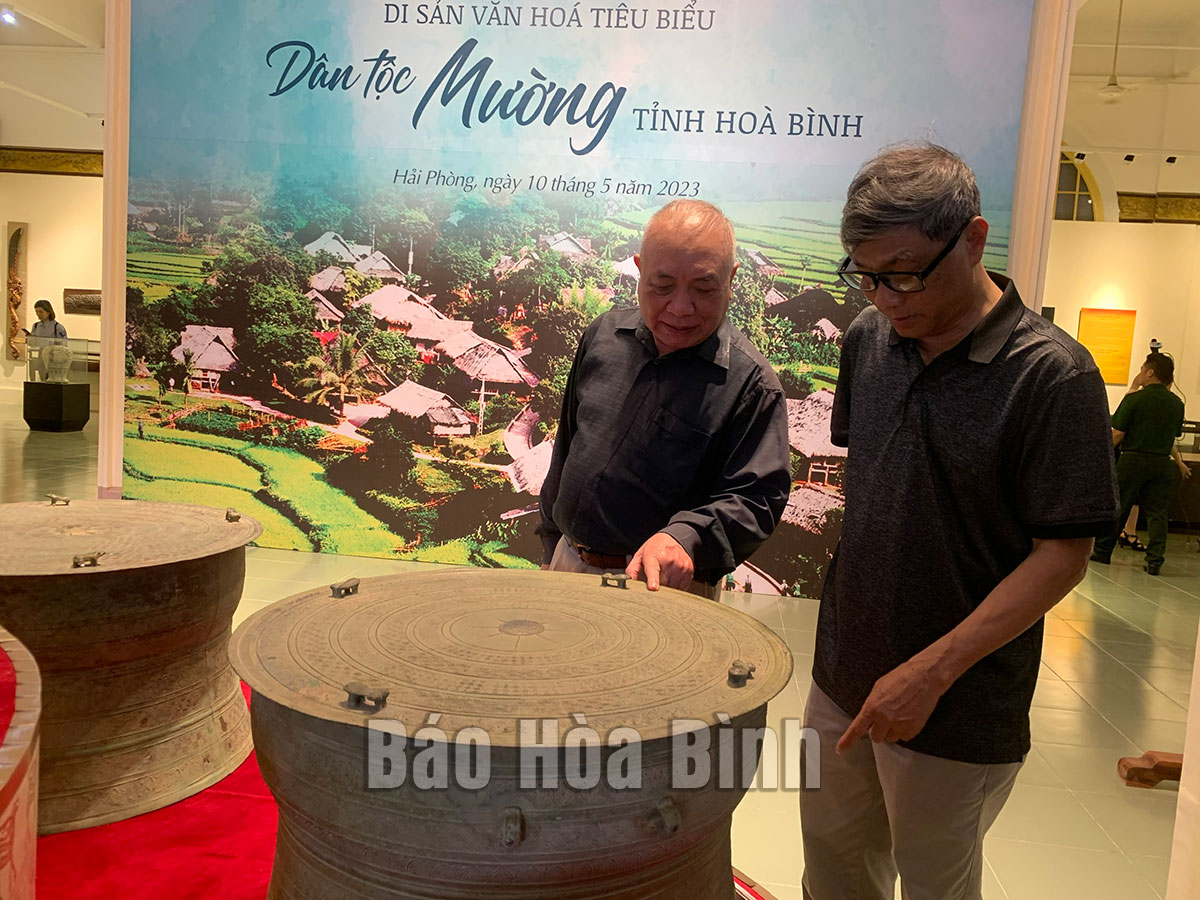
(HBO) – Residents in the northern port city of Hai Phong learnt about cultural heritage and traditional cuisine of the Muong ethnic group in Hoa Binh province through an exhibition held earlier this month at the Hai Phong Museum.
Visitors have a look at a bronze drum displayed at the
Hai Phong Museum.
On display were documents and objects featuring
the Muong group’s cultural heritage. Visitors to the exhibition had a chance to
explore the Muong people’s cultural heritage that has won national recognition
such as the art of playing gongs; Mo Muong - a job and also a performance
practiced at funerals, religious festivals, and life cycle rituals by the Muong
ethnic group; 'Doi' calendar; and Khai ha (going down to the field) festival.
The exhibition also introduced the Muong
people’s spoken and written language, folk literature, social customs,
traditional festivals and performing arts. A range of cultural and art activities
were held on May 10-11.
Nguyen Ba Thanh Long, deputy head of the Hai
Phong antiquities association, said the exhibits present the core of the
national culture, adding that this is the first event that sees the
coordination between the two departments of culture and sports and the Hai
Phong and Hoa Binh Museums.
It helped people understand more about local
culture, while bringing Hoa Binh and Hai Phong closer through culture.
Bui Thi Niem, Director of Hoa Binh's Department
of Culture, Sports and Tourism, highlighted Hoa Binh’s diverse cultural
heritage, which, she said has served as an impulse for the province's
socio-economic development during the cause of reform and integration.
Tran Thi Hoang Mai, Director of Hai Phong city's
Department of Culture and Sports, said the exhibition offered an opportunity to
promote the unique culture of the Muong ethnic group in particular and Vietnam
in general, thus contributing to boosting the tourism sector./.
The People’s Committee of Lac Son district held a ceremony on April 28 to receive the provincial relic certificate for the ancient rock carving site at Suoi Co stream, located in My Thanh commune.
A special music show titled "The country is in the fullness of joy” has been held at Hoa Binh Square in Hoa Binh city in celebration of the 50th anniversary of the liberation of the South and national reunification (April 30, 1975–2025).
The People's Committee of Lo Son commune, Tan Lac district, has organised the local annual traditional stream fishing festival on April 19 - 20.
As a land deeply intertwined with human history and Vietnam’s millennia-long journey of nation-building and defence, Hoa Binh is often revered for its epic tales and legends.
Residents of Hoa Binh boast a rich cultural identity, reflected in their unique language, traditional attire, customs, and folk melodies – described as "sweet as honey, clear as a mountain stream.”
Lac Son district’s Vu ban town held the 2025 Truong Kha temple festival on April 12–13 (the 15th–16th days of the third lunar month). Since its revival in 2019, the festival has been organised every three years, preserving valuable intangible heritage while meeting the community’s cultural and spiritual needs.



